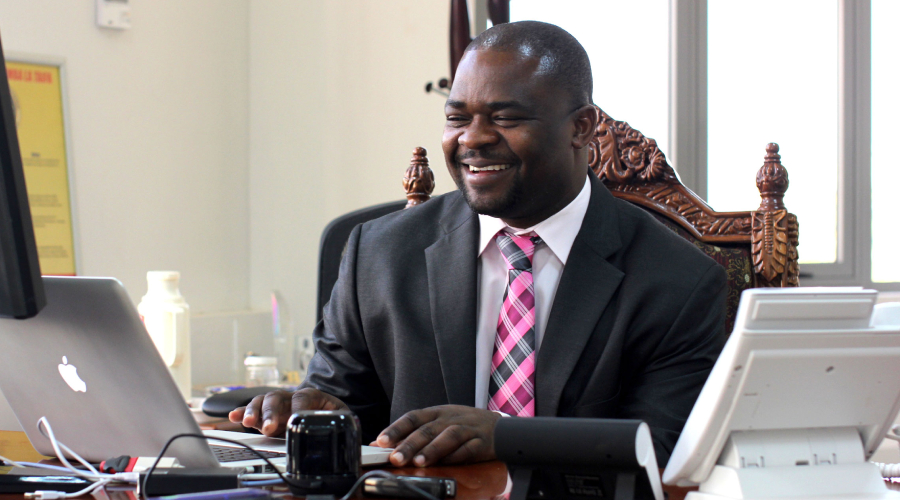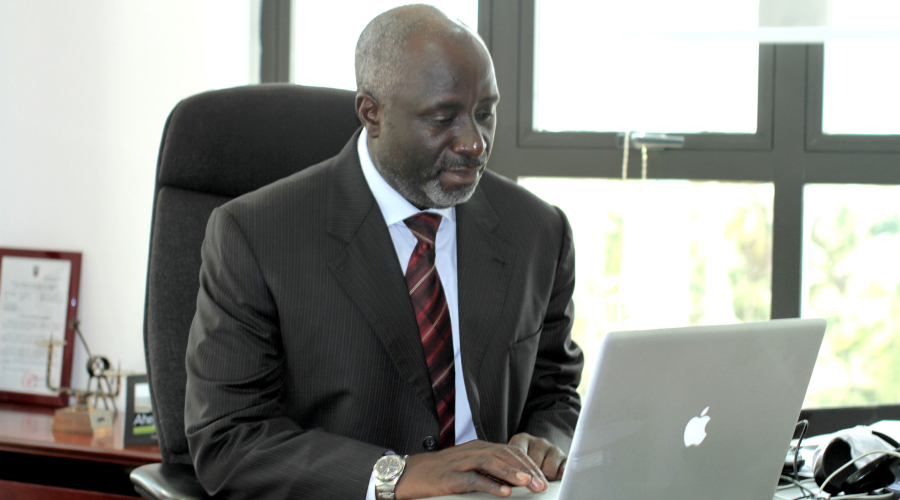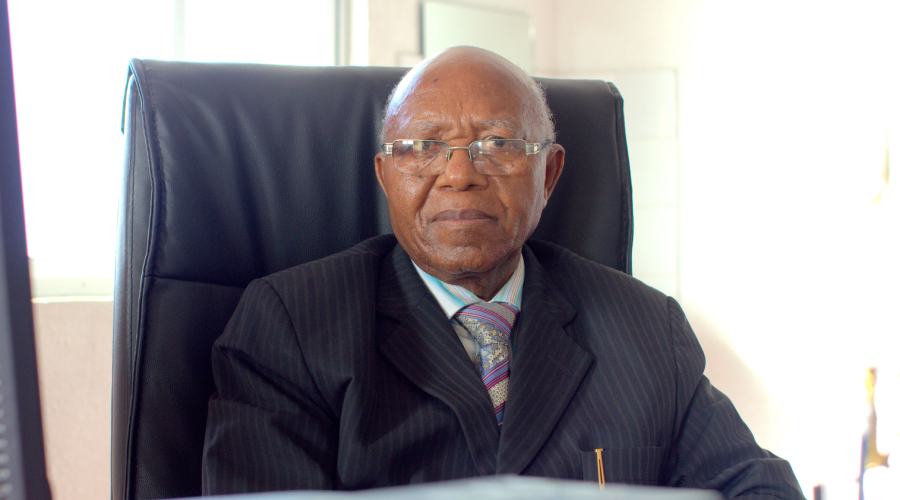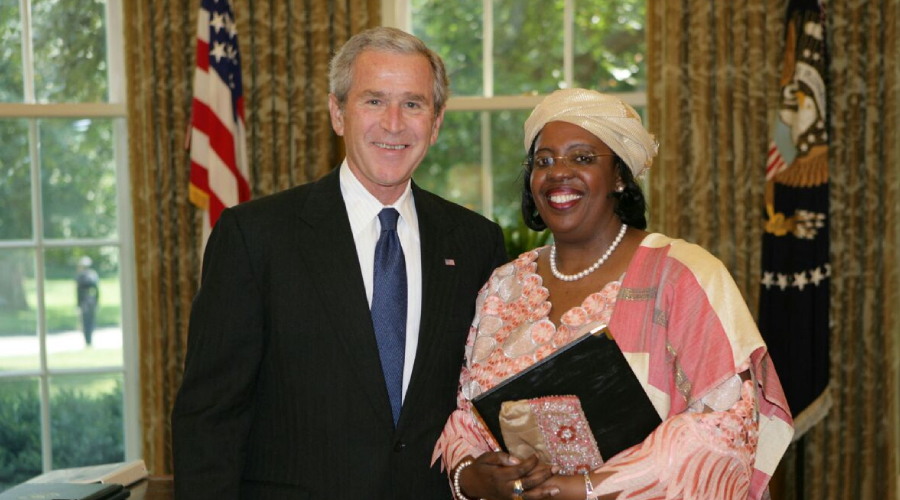Learning from Mchechu’s major breakthrough in business management

You have two years in which to turn a losing company into a profiting one, but you have only a tight budget to inject into it! Faced with such a daunting task, whom should you turn to for inspiration in Tanzania? The answer is Nehemiah Kyando Mchechu.
Mchechu is indeed a unique and inspirational leader of our time. He has had a rare breakthrough in the world of business management.
His unique business skills have transformed the lives of the majority of people. He is a prodigy in planning.
Many chief executive officers (CEOs) prefer either to build a new company starting from scratch or join a very profiting company. Very few will agree to take on a losing company fearing it may even end up destroying their career and CV. However, Mchechu is the opposite of those CEOs. He managed not only to turn losing institutions into profiting ones, but also in the most shortest time ever recorded into the financial sector. In less than a year, from the time he took over the leadership of Bank of Africa Tanzania Ltd, he recorded a profit from the years of loss-making.
To some, it looked like a miracle, but it was his skills of planning and leadership that made it possible.
Historically, Tanzania is well-known for making great strides, including the struggle for independence under the credible leadership of its young people.
Mchechu is a continuation of those leaders.
He is the most successful young managing director of our time.
The National Housing Corporation (NHC) is the largest government-owned housing enterprise in East and Central Africa with assets worth billions of dollars.
Since took over as CEO of this large parastatal, he proved beyond doubt that even government-owned business entities can make profit if managed professionally.
Today NHC is a parastatal that everyone wants to be associated with. He transformed the tarnished image of the parastatal into something for Tanzanians to be very proud of. Despite all that he has achieved, he remains to be a very humble person, hard-working and focused person.
For young CEOs, entrepreneurs and the business community in general, Mchechu is the mirror through which success is reflected. Read about him and emulate him or make him your icon. You will definitely see some light to succeed in your plans.
That is another product of Tanzania. Who’s who Tanzania had an opportunity to sit down with him. Please, follow us and get it from his mouth.
Who’s who in Tanzania: Could you please take us through your early childhood Mr Mchechu?
Mr Mchechu: My background was not all roses. I was raised by my grandparents from the age of three. That was in Mbeya. I stayed with my aunt and uncle. Let me say a true African extended family. But life was really difficult. Having to go to a farm on weekends and some evenings after school meant there was no playing around with peers. But that helped me as well. It gave me an independent life and I grew up thinking and acting like an adult.
Who’s who in Tanzania: Could you briefly share with us your journey from the time you left school to when you joined civil service?
Mr Mchechu: What I can tell you is that, I didn’t join university soon after high school. My grandmother had a rough time to pay my fees. So, I was of the notion that she could not possibly afford footing my university costs. I opted to set up a small business, dealing in stationary. I had a bar and later bought a mini-bus for public transport and that’s how I raised university tuition fees. I joined the university just to obtain a paper and fit in my social group. I did not have it in mind that later I would seek employment. As I said I had businesses to manage. But we usually plan not knowing what God has set for us. I studied B.COM at the University of Dar es salaam and later joined City Bank Group after my internship with the bank. I worked with Standard Charted Bank, Africa Bank now Commercial Bank of Africa and National Housing Corporation (NHC).
Who’s who in Tanzania: The biggest question is and will always be, how did you manage to turn loss-making companies around in a very short a time as was with Commercial Bank of Africa?
Mr Mchechu: Well, that is a difficult question because there is no definite answer to it. Let me say that the most important skill one needs is sacrifice. Not doing something because you’re going to be paid a certain amount of money. For example, when I joined Commercial Bank of Africa, I didn’t do it for money. I took a 30-per cent salary cut to join the bank. It is the same case when I joined NHC, I took a 35-per cent salary cut to join it. So, I did not go there for money. The second thing is having the same vision as shareholders.
This gives you support and the third thing is creating the right working environment for yourself and your colleagues. I should also say that another thing is to trust the staff you have and help them to be efficient. When I joined Commercial Bank of Africa (CBA) as Manager I became the first Tanzanian to head a foreign bank. I trained a lot of Tanzanians and made them believe that they could do it (manage a foreign company successfully).
The problem is that many of us don’t believe in ourselves.
Who’s who in Tanzania: Tanzanians see you as one of the most successful managers in the country. Please, tell readers some of the pertinent managerial skills one needs to manage a corporation of NHC’s calibre.
Mr Mchechu: I can’t say it’s something easy to do because you need selfless effort. You must have the right attitude and make a lot of sacrifice. You have to make the right network of people (people who matter). You must be able to sell yourself (what you do). You can’t sell something bad, so you have always to do the right things. I like calling it the Nehemiah philosophy. Have the right attitude towards what you do and deliver, make the right network of people and sell yourself through what you are and do.
Who’s who in Tanzania: In light of the founding principles of NHC, what is the company’s contribution to the socioeconomic status of common Tanzanians?
Mr Mchechu: NHC is the largest real estate developer in Tanzania and East Africa. It is worth US$1.6 billion which is the GDP of most small countries. So, we have a lot to offer to Tanzanians. We have branches all over the country and work on projects in 14 regions. We project to construct about 3,000 low cost houses each year beginning this year up from 40 units that I found the company constructing. The lowest cost per unit will be Sh30 million, but this depends on the region and area.
We provide about 25,000 direct employment opportunities and above 35,000 indirect jobs across the country. So, we have played our part towards improving the socioeconomic status of Tanzanians and living by the founding principles.
Who’s who in Tanzania: What do you take to be the turning point in your life?
Mr Mchechu: When I was appointed a management member in Standard Charted Bank, I was only 29 years old and my boss left me in change for two weeks. It’s at that point that I developed the ego of “yes I can”. Then, I had an opportunity to join CBA which despite an opening to go to Europe, I took a pay cut to remain in Tanzania and became a manager of a company that was making losses. Later on I joined NHC, another corporation that was struggling to pay its employees.
Who’s who in Tanzania: How do you spend your spare time Mr Mchechu?
Mr Mchechu: As you can see I hardly have free time. It’s a public holiday today and I am at work. I am grateful to my wife because I am always busy, but she understands. I try to spend the little free time I have with her. I read autobiography magazines as a hobby. We learn great things from great people and I love driving too.
Who’s who in Tanzania: Do you have any regrets in life?
Mr Mchechu: As an individual not any. About society “yes” there is one thing I regret; the fact that our leaders are not telling the youth the truth. The educated youth must be told that there is a price to be paid for one to be successful. Most young people in this country live in very unrealistic situations; a lot of day dreaming. They think that when they finish tertiary education the government will give them a good job.
But there are many things the youth can do without depending on the government. They should also be told that we are ambassadors of our country, age group, region and many more. What we do must be to the best interest of the people we represent. If I do something wrong people will start blaming the youth and not me alone.



